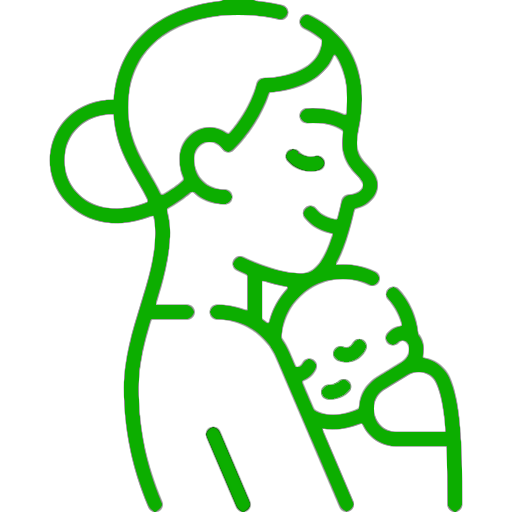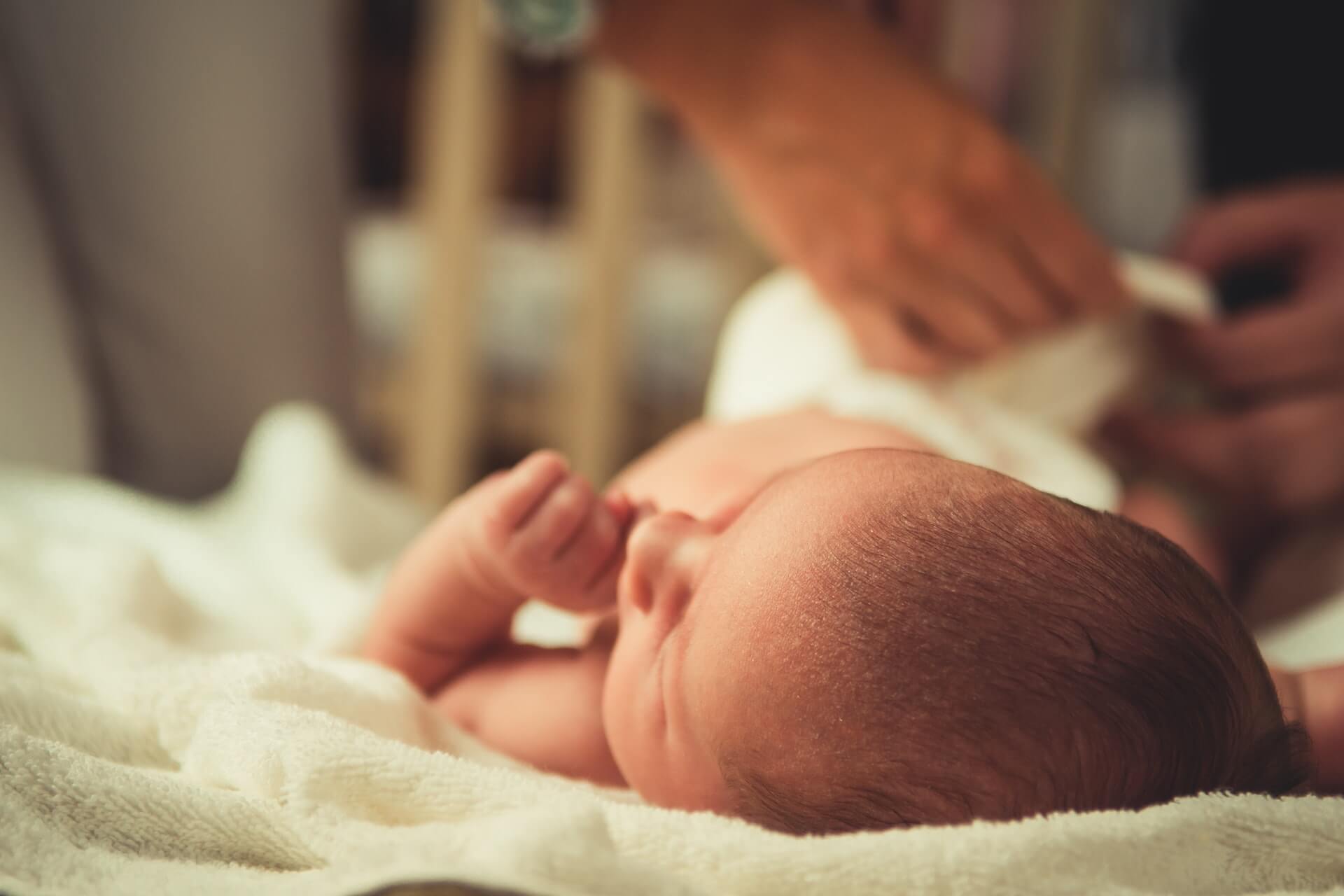Most of the Pregnancy Symptoms that women feel during pregnancy are natural, even if they are unpleasant. They are simply the result of being pregnant. Still, it’s natural to be concerned and wonder if everything is well and how to tell if it isn’t. Although true difficulties are uncommon, knowing what to look out for is always a good idea. Continue reading to learn about some pregnancy symptoms that you should not ignore and should be reported to your healthcare professional.
Pregnancy Symptoms Not to Ignore in Early Pregnancy
Got Vaginal spotting?
During pregnancy, vaginal bleeding can occur at any time. This may be due to hormonal changes, uterine infection, or other conditions. Some women have no symptoms at all. Other women experience light spotting that lasts only a few days. Heavy bleeding may last longer than a week. If you notice blood between your menstrual cycles, this could be a sign that you’re pregnant. If you have any health concerns, you should consult your doctor.
Persistent or severe vomiting
1. Pregnant women should avoid taking any medications that contain caffeine, alcohol, nicotine, aspirin, ibuprofen, acetaminophen, anti-inflammatory drugs, and other nonsteroidal anti-inflammatory drugs (NSAIDs). These substances can cause serious problems if taken while pregnant.
2. If you are experiencing nausea and vomiting, try eating small meals frequently throughout the day. Try not to eat too much at once, since this may lead to stomach discomfort. Drinking plenty of fluids helps keep your body hydrated and reduces the risk of dehydration.
3. If you experience morning sickness, try taking ginger root capsules. Ginger contains compounds called gingerols, which help reduce nausea and vomiting.
4. Do not take over-the-counter pain relievers without first consulting your doctor. Some medicines have been known to cause harm to the fetus
5. Talk to your doctor about how to best manage your condition. There are many different treatments for morning sickness, including herbal remedies, prescription medication, vitamins, and lifestyle changes.
Urge to pee or burning sensation while you urinate Dizziness or faintness
Pregnant women are often advised to drink plenty of water to prevent dehydration. This can lead to urinary tract infections (UTIs) if bacteria enter the bladder. UTIs can cause symptoms like pain or burning while passing urine, dizziness or fainting, nausea and vomiting.
This symptom can indicate that your body is not getting enough water. This could lead to dehydration, which can cause dizziness and fainting. If this happens often, you should drink plenty of fluids. You may want to try drinking some fresh lemon juice mixed with water.
Pregnant women are prone to urinary tract infections (UTI) due to their increased risk of bladder inflammation. This can lead to painful urination, frequent urination, and even blood in the urine. UTIs are common among pregnant women, but they can be treated easily if caught early.
A sudden urge to go to the bathroom is normal during pregnancy. However, if you feel like you need to pee frequently, then you might have a UTI.
Painful urination may be caused by pelvic inflammatory disease (PID). PID occurs when bacteria enter the uterus through the vagina and travel into the fallopian tubes and ovaries.
This symptom can be caused by many different things, but the most common cause is dehydration. Dehydration causes your body to retain water, which leads to increased blood pressure. This increase in blood pressure causes the veins to constrict, which results in the urge to pee. If this continues, it can lead to kidney damage.
Dizziness or faintness
1. Pregnancy dizziness or faintness can occur at any time during pregnancy. It may happen suddenly without warning or gradually over several weeks. This condition usually occurs after the first trimester of pregnancy. It is not dangerous but should be treated immediately.
2. Causes of Pregnancy Dizziness or Faintness
There are many causes of this condition. Some of them include:
– Excessive weight gain
– High blood pressure
– Low blood sugar levels
If you have any health concerns, you should consult your doctor.
Pregnancy Symptoms Not to Ignore in Mid- to Late Pregnancy
Lower abdominal pain
1. Pregnancy lower abdominal pain may occur at any time during your pregnancy but usually occurs after 20 weeks of gestation. It may be mild or severe and may last from a few hours to a few days. You may experience cramps, nausea, vomiting, diarrhoea, constipation, fever, fatigue, backache, vaginal bleeding, etc.
2. Pain can be caused due to various reasons. Some common causes are pregnancy-related issues like miscarriage, ectopic pregnancy, ovarian cysts, endometriosis, pelvic inflammatory disease (PID), uterine fibroids, adenomyosis, etc. Other causes include appendicitis, diverticulitis, gallstones, urinary tract infection, kidney stones, bladder stones, etc.
3. If you have been experiencing these symptoms for longer than 2-3 days, consult your doctor immediately. Your doctor will conduct a thorough examination and may order blood tests to rule out other conditions. He/she may recommend certain medications depending upon the cause of your condition.
4. In case of emergency, call 911.
5. Do not take any over-the-counter medication without consulting your doctor first.
6. Avoid alcohol consumption. Alcohol has no role in treating this condition.
Racing heart
Pregnancy Racing heart
1. Pregnant women are at risk of developing high blood pressure, called preeclampsia. This condition can cause serious complications for both mother and baby. High blood pressure is caused by increased levels of the hormone angiotensin II (AII) in the body. AII is produced by the placenta and causes vasoconstriction (narrowing of the blood vessels). In pregnant women, this effect is amplified due to the increase in circulating oestrogens.
2. Angiotensin II has been shown to stimulate the release of aldosterone from the adrenal gland. Aldosterone increases sodium reabsorption in the kidney and stimulates the production of water and salt. These effects lead to hypertension and fluid retention.
3. The best way to prevent preeclampsia is to reduce the level of AII in the body. There are two approaches to this: 1. Reduce the amount of AII that gets into the bloodstream; 2. Reduce the number of receptors that respond to AII.
4. One way to reduce the amount of AII entering the bloodstream is to eat foods rich in magnesium. Magnesium helps to block the entry of AII into the cells. Foods rich in magnesium include dark green leafy vegetables, nuts, seeds, beans, whole grains, and fish.
5. Another way to reduce the number of AII receptors is to take supplements containing L-arginine. L-arginine is a precursor to nitric oxide, which is responsible for relaxing the smooth muscle lining the arteries. Taking L-arginine supplements may help lower blood pressure.
6. If you have already developed preeclampsia, your doctor may prescribe medication to control your blood pressure.
Severe headache
1. Headaches are common in pregnancy. They can be caused by many things including hormonal changes, dehydration, constipation, food allergies, sinus problems, stress, anxiety, etc. If your headaches are severe, they may be indicative of something else going on like pre-eclampsia (high blood pressure). You should consult your doctor if you have any concerns about your headaches.
2. Pregnant women often experience nausea and vomiting. This is usually due to the hormones that are being produced by the placenta. Nausea and vomiting can cause dehydration. Dehydration can lead to headaches. Keep yourself hydrated throughout the day.
3. There are some medications that are safe to take during pregnancy. Before taking any drug, consult your doctor.
4. If you are experiencing any of these symptoms, contact your doctor immediately.Changes in eyesight
Pregnancy Changes in eyesight
1. Pregnancy changes your vision.
The first thing that happens to your eye when you are pregnant is that your pupils dilate. This allows more light into the eye, making it easier to see things at night. Your eyes can become dry and irritated, especially if you have allergies. You may notice that you need to blink more often than usual. And you might find yourself squinting or rubbing your eyes. These symptoms normally fade away after the baby is born.
2. Eyesight problems can occur while you’re pregnant.
If you’ve been diagnosed with glaucoma or cataracts before getting pregnant, you should talk to your doctor about whether they’ll affect your baby. If you already have these conditions, you may want to get checked out again once you’re pregnant.
3. Women who smoke cigarettes during pregnancy are more likely to develop glaucoma.
Smoking causes fluid pressure inside the eyeball to increase. Fluid pressure increases the risk of developing glaucoma. Smoking also decreases blood flow to the optic nerve, which could lead to damage.
Unusual weight gain, and swelling or puffiness
1. Pregnancy can cause unusual weight gain, especially if you are carrying twins or triplets. This is due to your body’s need to increase its supply of blood cells and protein. Your body may also experience swelling or puffiness around your belly, breasts, hands, feet, ankles, and face. These symptoms usually go away after delivery.
2. Swelling or puffiness that occurs during pregnancy is called oedema. Oedema can occur in any area of your body, but it is most common in your legs, arms, hands, and face. You may have swollen fingers, toes, lips, eyelids, ears, or cheeks. There are several reasons why you might develop oedema during pregnancy. Some women get this condition because their bodies don’t produce enough fluid. Other women may not drink enough water. If you’re pregnant, you should try to keep yourself hydrated throughout the day. Drinking plenty of fluids helps prevent constipation and other problems.
3. Weight gain during pregnancy can happen at different times. Most women gain about 12 pounds (5.4 kg) during the first trimester. After that, they tend to gain less than 10 pounds (4.5 kg) each month until the end of the third trimester.
Severe pain above the stomach, under the rib cage
The first sign that your baby is developing is usually around six weeks into pregnancy. This can be felt as a dull ache in the lower abdomen. However, if this doesn’t go away, then you should seek medical advice from your doctor.
1. Pregnancy Severe Backache
Backaches are quite common during pregnancy, especially at night. They can be caused by changes in posture and weight gain. Try to get up and move around regularly to prevent backaches.
2. Pain above the stomach, under the rib cage
Pain above the stomach, and under the ribs can be caused by many different things. One of the most common causes is kidney stones, gallstones, or other types of digestive problems. Another cause could be that your baby has moved into a position where he/she is pressing against your diaphragm. This can cause sharp pains in this area. If you have any questions about what may be causing your symptoms, please contact your doctor immediately.
3. Severe back pain
Back pain is a very common symptom during pregnancy. Most women feel some degree of discomfort in their backs throughout their pregnancies. Back pain can range from mild aches to severe pain that makes it difficult to move around. In addition, pregnant women tend to sleep differently than non-pregnant people. They tend to sleep on their sides instead of sleeping on their backs. This change in sleeping positions can lead to muscle strain in the back.
Vaginal discharge
Normal vaginal discharge is a clear, thin fluid that contains mucus, blood cells, and dead skin cells. This type of discharge usually occurs after ovulation and can last from 1-to 5 days.
1. White discharge
White vaginal discharge is normal and can occur at any time during pregnancy. This is usually caused by hormonal changes that are taking place in your body. You may notice this if you have been experiencing some cramping, bloating, or breast tenderness.
2. Yellow discharge
Yellow vaginal discharge is not normal and should be checked out by your doctor. If you experience yellow vaginal discharge, contact your healthcare provider immediately.
3. Green discharge
Green vaginal discharge is not normal either and needs to be seen by a medical professional. If you experience green vaginal discharge, contact your health care provider immediately.
Lower Back Pain
Back pain can occur at any time during pregnancy. Pregnant women are prone to back pain due to their changing body shape and weight gain. The extra pressure put on the lower back from the baby’s head pressing against the pelvis causes the muscles to tighten. This condition may cause discomfort and lead to muscle strain.
Pregnant women are at risk of developing lower back pain due to changes in their posture and weight gain.
Exercise
Exercise is recommended for pregnant women who suffer from lower back pain. Regular exercise helps to strengthen muscles and maintain good posture.
Massage Therapy
Massage therapy has been shown to reduce stress levels and help relieve lower back pain. A massage therapist should perform deep tissue massage that focuses on areas of tension.
Feeling your baby move less often
Between 18 and 25 weeks of pregnancy, women often notice the baby fluttering, kicking, or twisting. Once you’re well into the third trimester, your provider may ask you to time how long it takes you to feel 10 kicks, rolls, or flutters. It may just take a few minutes, but if an hour goes by with no movement, eat a light snack, lie down again, and try again. You can record these movements in a notebook. If you detect a lack of movement or your baby isn’t moving as much as usual over a few days, contact your healthcare practitioner to ensure everything is fine.
Vaginal bleeding
- Bleeding can occur at any time during pregnancy. Most women experience some form of vaginal bleeding during their first trimester. This usually occurs between weeks 6-12. Some women may have spotting that lasts less than a day, while others may have heavier bleeding that lasts longer. If your period has been irregular before becoming pregnant, this could be due to hormonal changes.
- Your cervix should open around week 12. You may notice a change in how your body feels. You may feel tired, bloated, or crampy. This is normal.
- Your uterus will begin to contract and expand. These is called Braxton Hicks contractions. These are not painful but they can cause discomfort. They usually last about 30 seconds each and happen several times per hour.
Itching all over
Pregnant women are prone to itching all over their bodies. This is due to the fact that they have increased levels of estrogen hormones. Estrogen causes the skin to become sensitive and itch. In addition, pregnant women often experience hot flashes. These hot flashes can cause the skin to become red and irritated.
Pregnant women are prone to itching all over their bodies due to hormonal changes that occur during pregnancy. This condition is called pruritus gravidarum. Pruritus gravidarium can be treated with antihistamines like Benadryl.
Women who are menstruating may also experience itching. This is caused by the flow of blood through the uterus. Blood carries iron, which can cause irritation to the skin.
Some people may experience itching from allergies. Allergies can cause the skin to swell and become inflamed.
If these methods fail to provide relief from your itching, then you should consult your doctor.
Your doctor will prescribe you medications like anti-itch creams, antihistamines, and corticosteroids.
Premature (before the end of 37 weeks of pregnancy) contractions of the uterus
Feelings can be entirely normal. Braxton Hicks contractions are normal; however, if your contractions continue (i.e., do not cease when you move or change positions) and become painful or frequent, it could be an indication of preterm labor. It is critical to call your healthcare professional as soon as possible in this scenario.
Fluid gushing or trickling from your vagina (before the end of 37 weeks of pregnancy)
Premature membrane rupture, commonly known as “water breaking,” can manifest as a trickle, constant leaking, or a rush of fluid from your vagina before your pregnancy has reached full term. If you see this, contact your healthcare professional straight away. When you reach full term, your water breaks, which indicates that labor has begun.
spotting or discharge from the cervix (between weeks 37 and 40 of pregnancy)
Light spotting or a pink or slightly crimson discharge is possible. This could be the first indication of labor, signalling that the cervix has begun to dilate and the mucus plug that
This page is based on professional advice from reputable medical and government organizations, such as the American Academy of Pediatrics and the American College of Obstetricians and Gynecologists. This page’s material should not be used in place of professional medical advice. For a complete diagnosis and treatment, always seek the advice of a medical expert.














Leave a Reply
View Comments